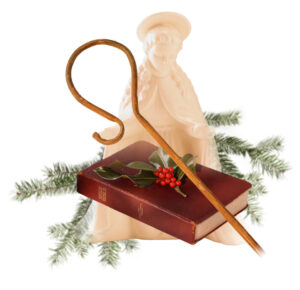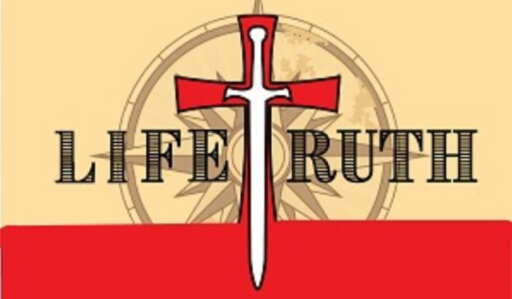Continuing to talk with the healed blind man who was cast out of the temple, Jesus reveals his credentials.

John 10:1-11
Jesus begins an official doctrine addressing the recently healed blind man, his disciples, and anyone who would listen. He begins with his trademark phrase, “amen amen.” Jesus points out that doors are for entering. Not using a door means something is wrong. Only a thief or robber looks for other entrances.
- A Fold. An open yard for penning sheep.
- Thief. Taking by use of sly trickery, to con someone. The Greek word is where we get the word kleptomaniac.
- Robber, or plunderer. Someone who uses blunt force to take or plunder.
Legitimate shepherds enter through legitimate doors.
- Doorkeeper, or porter. A trusted person to guard the fold.
Notice that when the real shepherd arrives, he is known and allowed access. The sheep see him and hear. They recognize the voice of their shepherd. The shepherd leads his flock. He doesn’t drive, drag, chase, or take them in any other way.
- Puts forth. Sets or establish.
- Goes ahead. To lead. The shepherd trusts his sheep are following.
- Follows. Trust, obedience, and recognition of the sheep in their shepherd. Obedience.
- Sees the voice, or to behold as well as listening to the voice. They know the shepherd’s voice.
Not only will Sheep not follow a stranger’s voice, but they do the opposite. They flee and run away.
Jesus’s usual style of teaching was in parables, or in this case an analogy. It was a mysterious saying to illustrate a point and was used even by prophets of old. The saying resonated with true sheep, but not the false ones.

Beginning another teaching that uses similar elements, Jesus claimed, “I am the door.”
As the door, he is the only entry point. A weak door won’t keep out enemies. The wall serves as protection to hedge about, and keep the sheep in the fold safe. There’s only one way in.
As doorkeepers, Jesus seems to be referring to those who have recently come ahead of him. Pharisees and other religious leaders.
Prophets of old had a correct word from God, and aren’t meant to be included. as Thieves and robbers. At any rate, the sheep aren’t listening to the false leaders. They are hungry for the truth.
With the claim. “I am the door.” Is there any doubt that Jesus is the only door? For a time, a porter or gatekeeper may be put in charge of securing the open gateway. That person is responsible to the master if anything should happen. The only opening can only be truly secured by the true shepherd. Because of this, safety and a haven designed for sheep can be found.
10 “The thief comes only to steal and kill and destroy; I came that they may have life, and have it abundantly.
NASB
The thief doesn’t come unless it’s to steal, kill and destroy. It should be emphatically clear that false leaders don’t have any good or healthy purposes in mind. They come to take. Jesus comes to give. Jesus gives life, but it’s not only in abundance, it’s Superabundance.
Finally, in verse 11 we have a double challenge.
11 “I am the good shepherd; the good shepherd lays down His life for the sheep.
NASB
The phrase is, “I am the shepherd, the beautiful.” The meaning is that beauty is in a moral or good sense.
What does this beautiful shepherd do?
He places, or sets, or establishes his soul on his sheep. To say he lays down his life might be more accurately stated as,” he covers them with his life.” He is willing to go into harm’s way to cover and shield his sheep.
The challenge is related to the idea of how Jesus can claim to be the shepherd here, and as a sacrificial lamb elsewhere. Hint, the word “elsewhere” ought to be a clue that there’s an error in understanding context and the use of the analogy. Remarks by J Vernon McGee address the challenges as well as a reference to The Big Book of Bible Difficulties, by Geisler and Howe. Baker Books, 1992.

Credits
consider supporting the podcast through our Patreon page.
feel free to drop us an email, use the comments on the show note page, or call our voicemail at (401)753-4844.
Follow us on social media, and join us in what we’re doing there.
Twitter: @HPNCast
Facebook Page: @LifeTruthPage
Facebook Group: HPNCast Community

Thanks to the recorded comments from J Vernon McGee. His ministry and daily bible study live on through Through the Bible Ministries (ttb.org)
Scriptures in the show notes and episode are quoted from the King James Version, except when read by Keith, then it’s alternately from the ESV or the NASB.
Scripture quotations are from The ESV® Bible (The Holy Bible, English Standard Version®), copyright © 2001 by Crossway, a publishing ministry of Good News Publishers. Used by permission. All rights reserved.”
“Scripture is taken from the NEW AMERICAN STANDARD BIBLE®,
Copyright © 1960,1962,1963,1968,1971,1972,1973,1975,1977,1995
by The Lockman Foundation. Used by permission.”
Podcast: Play in new window | Download (Duration: 1:01:25 — 56.2MB)
Subscribe: Apple Podcasts | Amazon Music | Podchaser | RSS | More

